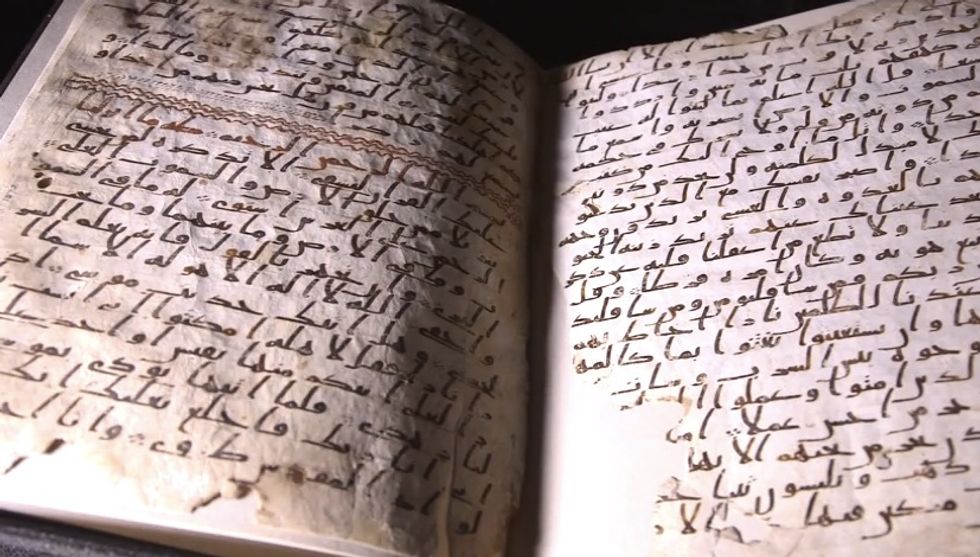
YouTube

British researchers were in for a shocking surprise after taking a closer look at an ancient manuscript that had been given little attention while being housed in a university library for nearly a century.
The document, which was penned on goat or sheep skin, is now making international headlines after the fragments were radiocarbon tested and found to be among the oldest Koranic manuscripts in the world.
Written in Hijazi, an early form of Arabic, the manuscript includes chapters 18 and 20 of the Islamic holy book.
Comprised of two parchment leaves, the text was widely overlooked after being incorrectly bound to another text at a University of Birmingham library, but then someone noticed that the handwriting didn't quite match, and curiosity led to a deeper dive into its origins.
The text was subsequently dated between A.D. 568 and 645 with a probability of 94 percent, which means that the document was likely written close to the life of Muhammad, Islam's key prophet, according to a university press release.
Muhammad was believed to have lived from A.D. 570 to A.D. 632, with researchers saying that the document was potentially written within years of the Islamic prophet's death, and could have been translated by one of Muhammad's contemporaries, as the New York Times reported.
"The radiocarbon dating has delivered an exciting result, which contributes significantly to our understanding of the earliest written copies of the Koran," Susan Worrall, director of special collections at the Cadbury Research Library said in a statement. "We are thrilled that such an important historical document is here in Birmingham, the most culturally diverse city in the UK."
Two educators at the University of Birmingham — Christianity and Islam professor David Thomas and inter-religious relations professor Nadir Dinshaw — have described the find as "one of the most surprising secrets of the university’s collections," and said that the document might have been written just years after Islam was founded.

Muslims believe that Muhammad began to receive revelations from Allah between A.D. 610 and 632; he died that latter year.
There has been dispute over whether these purported encounters were written down during his life, or years later after being passed from person to person through word of mouth. The discovery shows that at least some text was potentially written down not long after his death, the Times reported.
Read more about it here.
Billy Hallowell